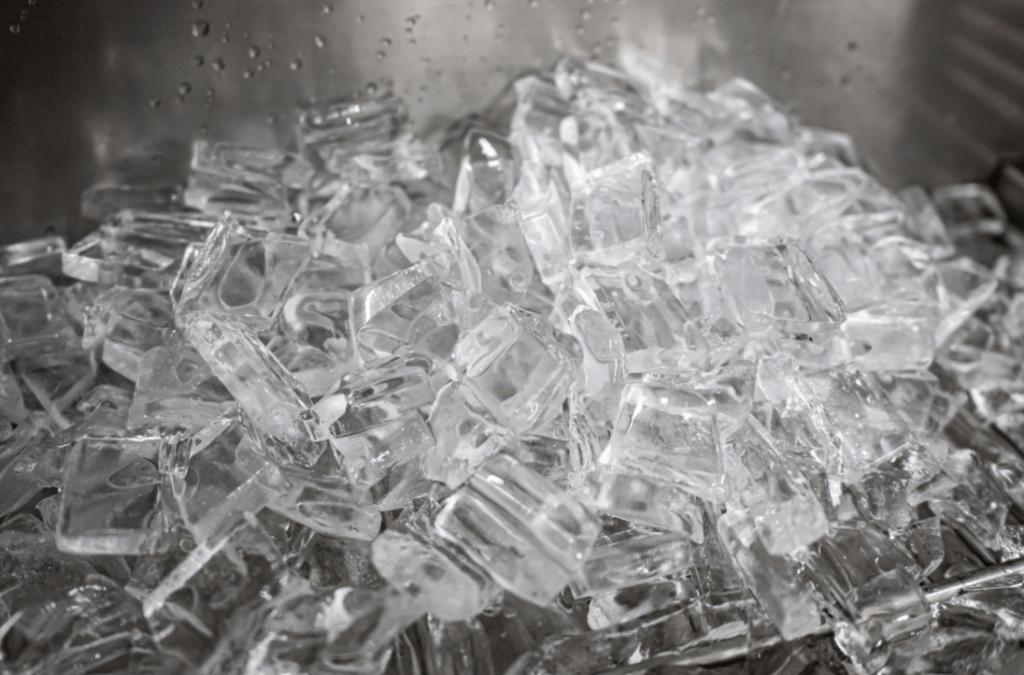Creating a regular cleaning regimen for your ice machine is crucial to ensure your machine produces quality ice and extends its lifespan.
Follow these steps to regularly clean your ice machine.
How to Clean Your Ice Machine
Step 1. Remove Ice before Cleaning
Start by emptying the machine of ice.
Step 2. Clean the Water System
A clean water system can significantly improve your ice machine’s overall effectiveness and production, so follow the instructions in the machine’s user manual.
Step 3. Remove and Inspect Water Filters
These filters condition incoming water, reduce the machine’s cleaning and maintenance frequency, improve the taste of ice and allow the machine to operate at peak efficiency and performance. Make sure they don’t need to be replaced.
Step 4. Check the Filtration System and Water Pressure
Check your ice machine’s filtration system to ensure pressure drops are not occurring due to possible blockage of restrictions.
Step 5. Visually Inspect Entire Machine
Take a visual inventory of all components. This includes the evaporator, water sensors, cube sizing controls, water distributor parts, thermistors, water hoses, and water reservoir and water valve. These need to be free of any debris or blockage.
Step 6. Sanitize All Components
Follow the manufacturer’s user instructions to sanitize the entire machine, including the dispenser and storage bin, after cleaning. Don’t assume you can use bleach, which could corrode many of the components.
Step 7. Return Parts and Observe
Return all the parts and then run two cycles to ensure it is functioning correctly and to rid any chemicals that may have been left while sanitizing. Dispose of the first batch.
Keep a Cleaning Schedule
Cleaning times for ice machines average every 30 to 90 days. Consult your user’s manual to find out how often your model requires cleaning.
Bacteria, viruses, mold, brown slime, and mineral scales can build up in places you can’t reach without taking the machine apart and cleaning it. Also, to keep it producing ice reliably and at peak capacity, it needs professional inspection and service from a qualified refrigeration service company.
Practical Deep Fryer Safety Tips For Commercial Kitchens
By Leslie Radford
**Updated April 2024

